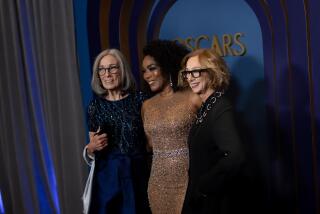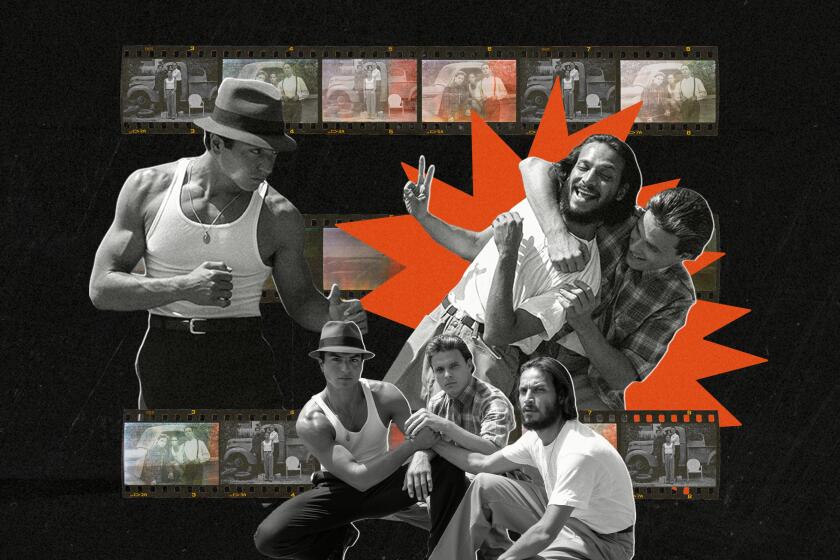Academy to honor Harry Belafonte for his activism
When Harry Belafonte appeared in mob-controlled Las Vegas in the 1950s at the Thunderbird Hotel, he decided to challenge the racist system that prevented African American performers from staying at hotels on the Strip.
“I walked into the lobby, going to the desk to register,” said Belafonte, 87. “The woman looked at me like I was a Martian. She went back and got the manager. I went into his office, and he said ‘The rules are you can’t stay here.’ I was absolutely taken aback. I said, ‘Well, I don’t think this is going to work.’”
The manager turned Belafonte over to “the big boss.”
“I said, ‘I’d just like to leave town quietly, and you go ahead do what you want to do with your rules,’” Belafonte said. “He said to me, ‘The only way you are going to leave here without playing out that contract is in a box.’”
Belafonte called his uncle in Harlem, who had connections to Alex “Shondor” Birns, the Cleveland mobster. “Word came down the rules no longer applied to me by intervention of a very high authority,” Belafonte said. “So I took that moment to push: I went swimming. I did everything I was told not to. Eventually my whole band stayed at the hotel. Things changed.”
This Saturday, the activist-actor-singer-songwriter will receive the Academy of Motion Picture Arts and Sciences’ Jean Hersholt Humanitarian Award at the Governors Awards ceremony in Hollywood. Previous winners of the Hersholt award include Angelina Jolie, Oprah Winfrey, Paul Newman and Audrey Hepburn. This year honorary Oscars are going to actress Maureen O’Hara, screenwriter Jean-Claude Carrière and director Hayao Miyazaki.
The Hersholt award, academy President Cheryl Boone Isaacs said, is granted to those who are “instrumental in humanitarian causes” and who “bring a spotlight and public awareness to certain issues.”
“Mr. Belafonte has been an activist his whole life,” she said.
Belafonte fought against injustice long before he met Martin Luther King Jr. in 1956 and became a major force in the civil rights movement.
“I am not an artist who became an activist,” Belafonte said. “I am an activist who became an artist.”
The artist came to fame six decades ago, making his film debut in 1953’s “Bright Road” and later starring in 1954’s “Carmen Jones” and 1959’s “Odds Against Tomorrow.” He brought Caribbean music into the mainstream in 1956 with “The Banana Boat Song.” And he became the first African American to win an Emmy, for his 1959 CBS musical special.
Belafonte’s activism, however, wasn’t always beneficial to his career.
“People say, ‘You have sacrificed a lot,’” he said. “I say, hold it. Let me just paint a scenario for you.”
If he hadn’t been an activist, Belafonte noted, “I never would have become so intimately involved with Nelson Mandela. I would never have been so intimately involved with a man who selected me not only to be a confidant but a close friend — Dr. King. I never would have been embraced to the extent I was by Eleanor Roosevelt. She stepped into my life in a huge way because of our mutual sense of injustice in the world.”
Belafonte’s pursuit of social change began as a youngster in Harlem watching his Caribbean family wrestling with issues of race and poverty.
“There was a theme in our circle of never accepting oppression without resistance,” he said, singling out his mother, whom he described as “very feisty and very much against injustice.”
After volunteering as a teenager for the U.S. Army during World War II, Belafonte and other black veterans expected to return to a “very generous America” because they had shown “great loyalty to this country, to the values of this country.” Instead, he said, “we came back to a very rigid set of racial lines that were being drawn. The laws of segregation were being intensified.”
Belafonte’s life changed when he went to see “Home Is the Hunter,” a drama about the problems of black veterans, at the American Negro Theater in Harlem.
“It was kind of an epiphany,” he said. “I found something that so delighted me and attracted my attention. I really wanted to be a part of it. That ultimately led me to study theater.”
While he was at the theater, he met the man who would be one of his greatest friends and influences: the blacklisted African American actor, activist and singer Paul Robeson.
“We were quite overwhelmed by his presence,” Belafonte said. “We began to listen to his ideas and what he had to say.”
By 1954, Belafonte found himself on the blacklist, a fact that angered Ed Sullivan, the host of CBS’ popular “The Ed Sullivan Show.”
Belafonte had just won the Tony Award for supporting actor for the musical “John Murray Anderson’s Almanac” and was set to appear the following week on the Sullivan show. But then Sullivan got word from CBS that Belafonte was in political hot water.
Sullivan summoned Belafonte to a meeting.
“He was really looking for a way in which to maybe challenge the reason I was blacklisted,” Belafonte said. “He said, ‘I have a list of things that you are charged with that has caused them to believe you are very unpatriotic.’ I asked him tell me what the list described me as being.”
Sullivan read the list.
“As a matter of fact, your list is way short of many of the things I have done and will continue to do,” Belafonte told Sullivan.
Then Belafonte challenged Sullivan, asking the Irish American host to compare how the Irish rebellion against the British was considered “an act of nobility,” whereas the reaction to black Americans and “our resistance to the tyranny we’ve experienced” was quite different. “I appealed to him on that basis,” Belafonte said.
Belafonte left the meeting. That afternoon his agent called and said Belafonte would be on “The Ed Sullivan Show” that Sunday.
More to Read
Only good movies
Get the Indie Focus newsletter, Mark Olsen's weekly guide to the world of cinema.
You may occasionally receive promotional content from the Los Angeles Times.







